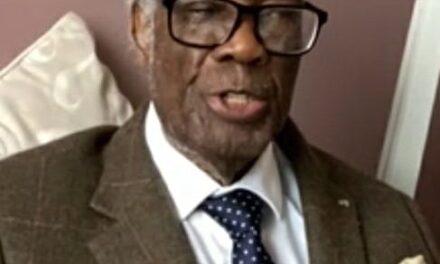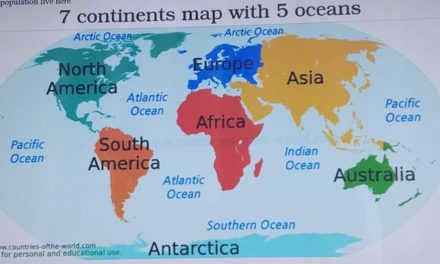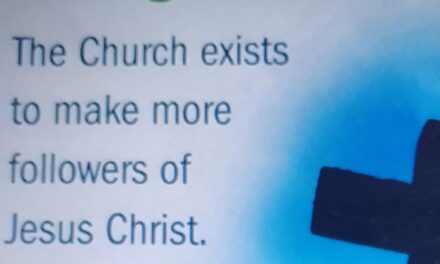There is an end to human history which goes beyond the time of one’s death or positions in this age. Beyond the arguments and misunderstanding on either dead people go to heaven or to hell after death, the parable of the rich man and Lazarus warns us against greed, pride, cynicism and the judgement of God. Judgement is not just what modern people don’t want to talk about, it is rather uncomfortable to the religion of modernity hence, the modern tending towards tolerance and love. Abraham’s response to the rich man’s request to relieve his suffering and later to send a message to his brothers points us to the reality of God’s judgement. A son of Abraham in Hell, and the father could not help? The father replied, ‘Son, remember that in your lifetime you received your good things, while Lazarus received bad things, but now he is comforted here and you are in agony. And besides all this, between us and you a great chasm has been fixed, so that those who want to go from here to you cannot, nor can anyone cross over from there to us” (16:25-26). The rich man addressed Abraham as his “father,” and Abraham called him “Son.” Beloved, your Christian background, title or roles in the church cannot stop you from facing God’s judgement just as ‘there is no hope of moving from torment to the blessings of Abraham’s bosom, or of Lazarus helping the rich man. The die has been cast; the outcome is irreversible.’
This parable convey missional truth in relation to a day of judgement for the wicked, and it will include a fiery, torment (2 Pet 3:10). In Luke 16, we read about ‘a certain rich man’ who died and was buried. The profile of the rich man did not suggest him to be vindictive but his wealth caused him to be blind to the truth. We also read about a certain beggar with a name, Lazarus who died first ‘and was carried by the angels to Abraham’s bosom.’ The profile of Lazarus in the context of the First Century Middle East suggests that the dog that lick Lazarus’ sores are not pets. The ‘dogs are considered unclean, wild street dogs that scavenge the garbage, and then nose around the poor man’s sores. It is not a picture of comfort but of abject misery.’ Beloved, ‘If you had a choice between the two – what kind of life would you prefer to live? The good life here on earth or the good life in Heaven?’
To be judged faithful and be carried into Abraham’s bosom suggests Lazarus as a follower of Abraham’s example of faith. The rich man, judged and in torments in Hades saw Abraham and Lazarus afar off and cried out, “Father Abraham, have mercy on me, and send Lazarus that he may dip the tip of his finger in water and cool my tongue; for I am tormented in this flame” (Luke 16:22-24).
It is sad that modern people enjoys and continue in their greed, lying and cynicism to build the great gulf fixed in this life that separate the poor and the rich but are not ready to experience the great gulf fixed in the judgement to separate the righteous and the wicked. Today’s great gulf that separates and divides the people is born of greed, attitude of callous indifference to people’s suffering, self-centredness, and corruption. There are many laying and dying today at the gate, in the plain sight of many rich people and nations. The parable of the rich man and Lazarus reminds us about our obligation towards others. The outward appearance of the rich man dressed in linen clothes and lived in extreme luxury did not match his inward condition. He was spiritually poor, unrepentant and bankrupt. The rich man in his pride failed to see Lazarus’ dignity and still sees him as an errand boy. From the rich man’s personal experience, he knows that his family are not saved, they do not take seriously what God’s law and the prophets says.
Despite the fact that, the rich man lifted up his eyes to see Lazarus, he still look down on Lazarus, wanting Lazarus to serve him even in death. The rich man even in death does not deem it appropriate to ask Abraham to send Lazarus to him in order to apologise for his sinful neglect and seek forgiveness. Indeed, the rich man was unrepentant, blind to recognise Lazarus’ dignity. Sin hardens our heart and the more we remain in sin, the harder our hearts become. The rich man even in torment has not change; his character, pride, demeanour are fixed.
The reflection for us in this parable suggests that the more you holds the unrepentant attitude of this rich man, the more you stands in danger of a growing “great gulf” not just between yourself and your fellow man and woman but also between you and God. The great gulf in our churches, communities and nations goes beyond the Persian Gulf, Gulf of Mexico, and Gulf of Aden. The Rich Man in this parable resonates with rich nations and churches and the need to listen to the cry and message of the Lazarus churches and nations before it is too late.
The rich also cry, ask the nameless rich man in the parable, and the poor also rejoice, ask Lazarus. The bad news is that, the cry of the rich man in sending warning to his father’s house was too late. The lesson for you and I is that, those who have heard the Scriptures are not ignorant of their sins, if they do not repent they will end up like the rich man. The parable of the rich man and Lazarus invites us to obey the light of Scripture authority which we have heard.
This parable reminds us that every good things and positions we received in our lifetime is not a guarantee for a happy end and eternal life, and that every evil things we suffered in our lifetime are not eternal. In the coming Great reversal, the first will become last, the rich man will remain nameless and Lazarus will be remembered.











Recent Comments